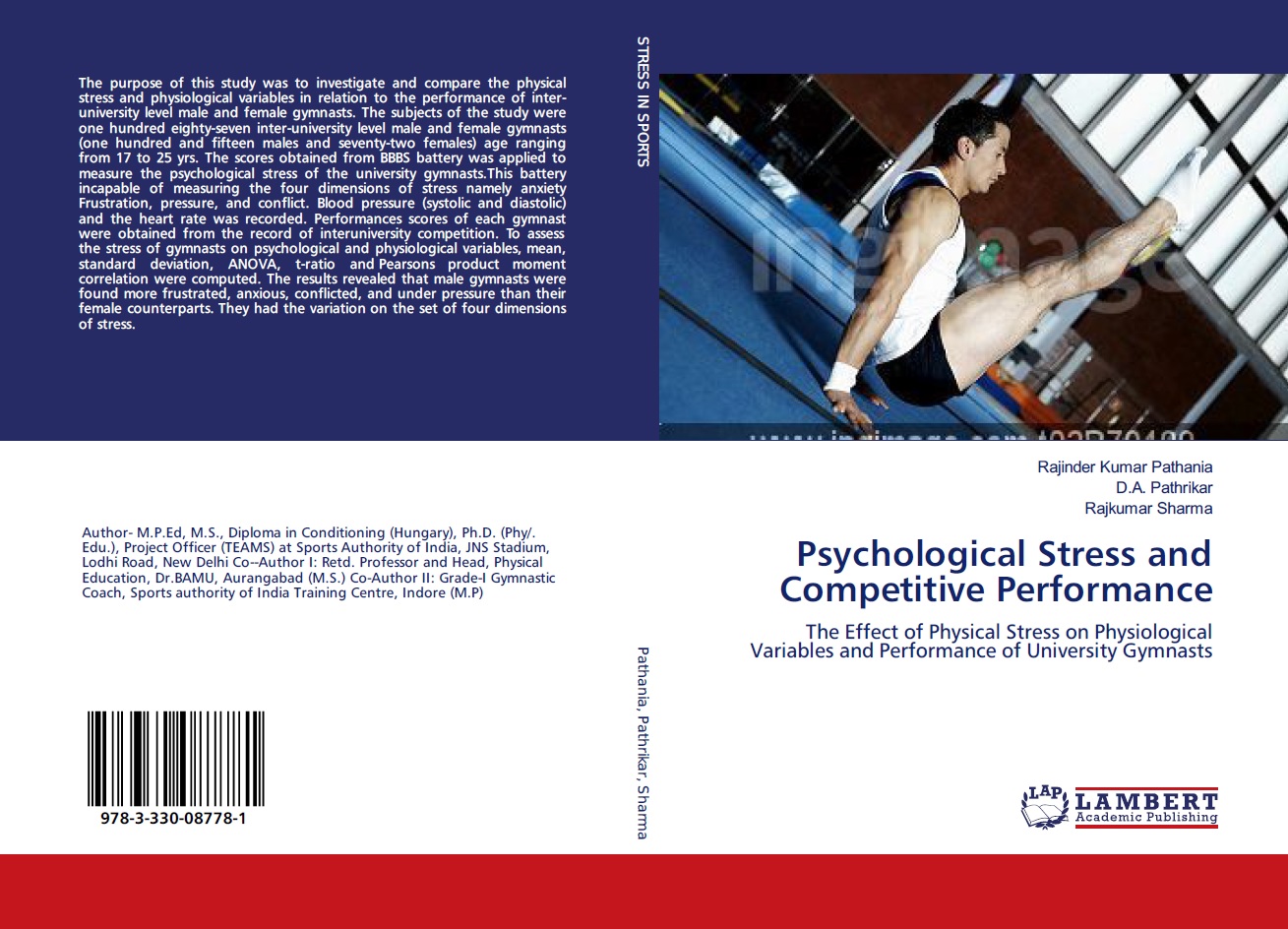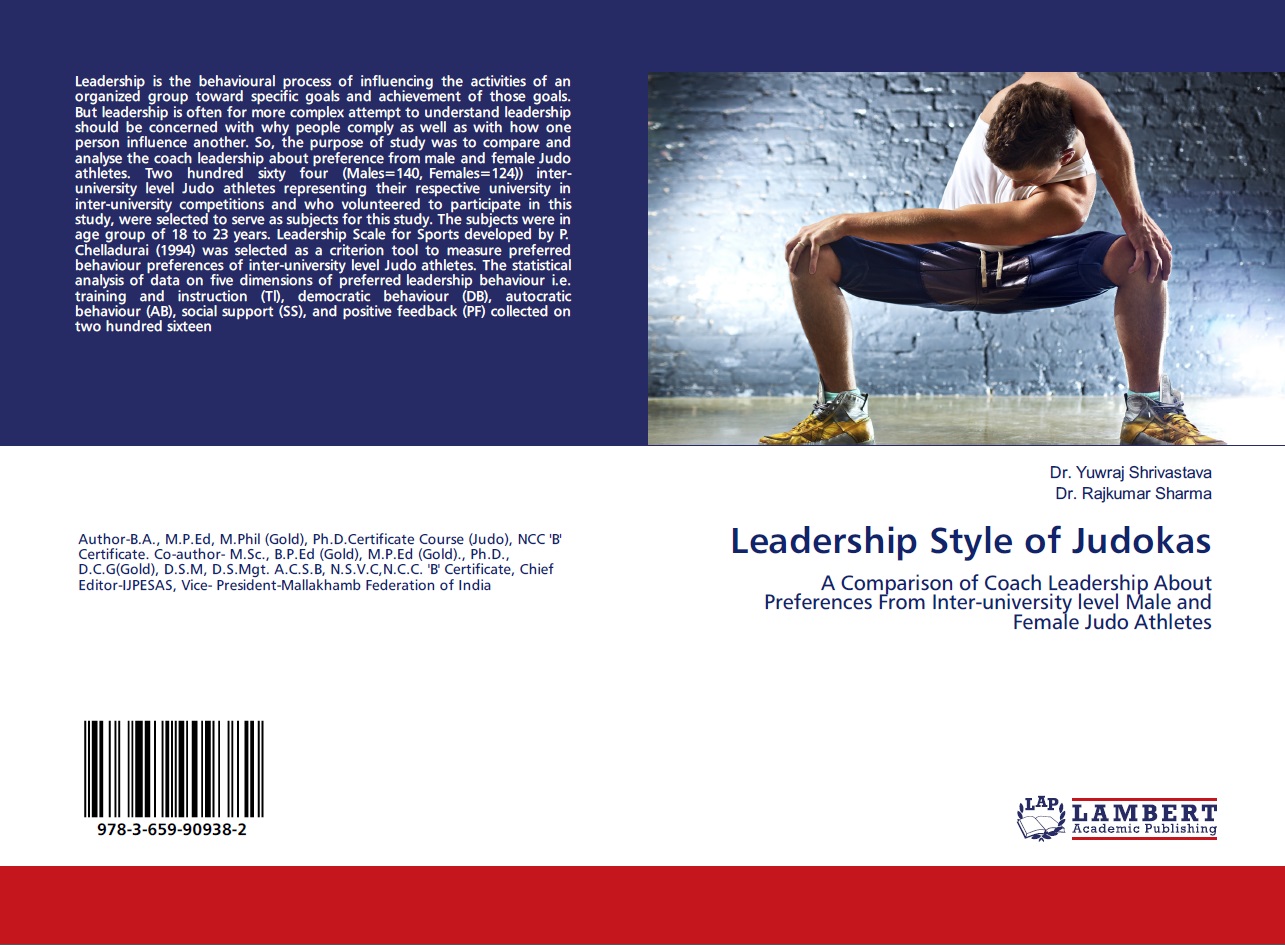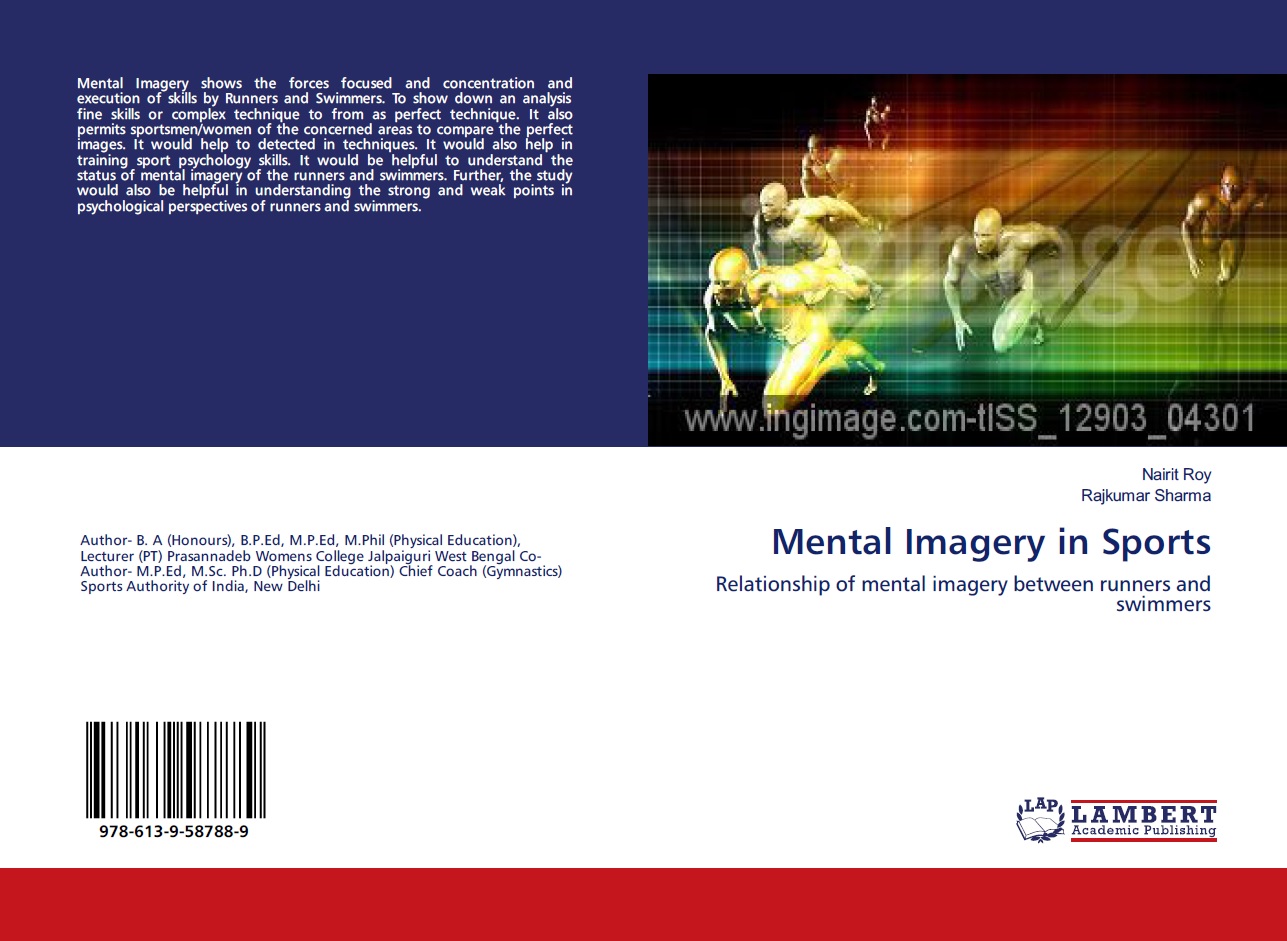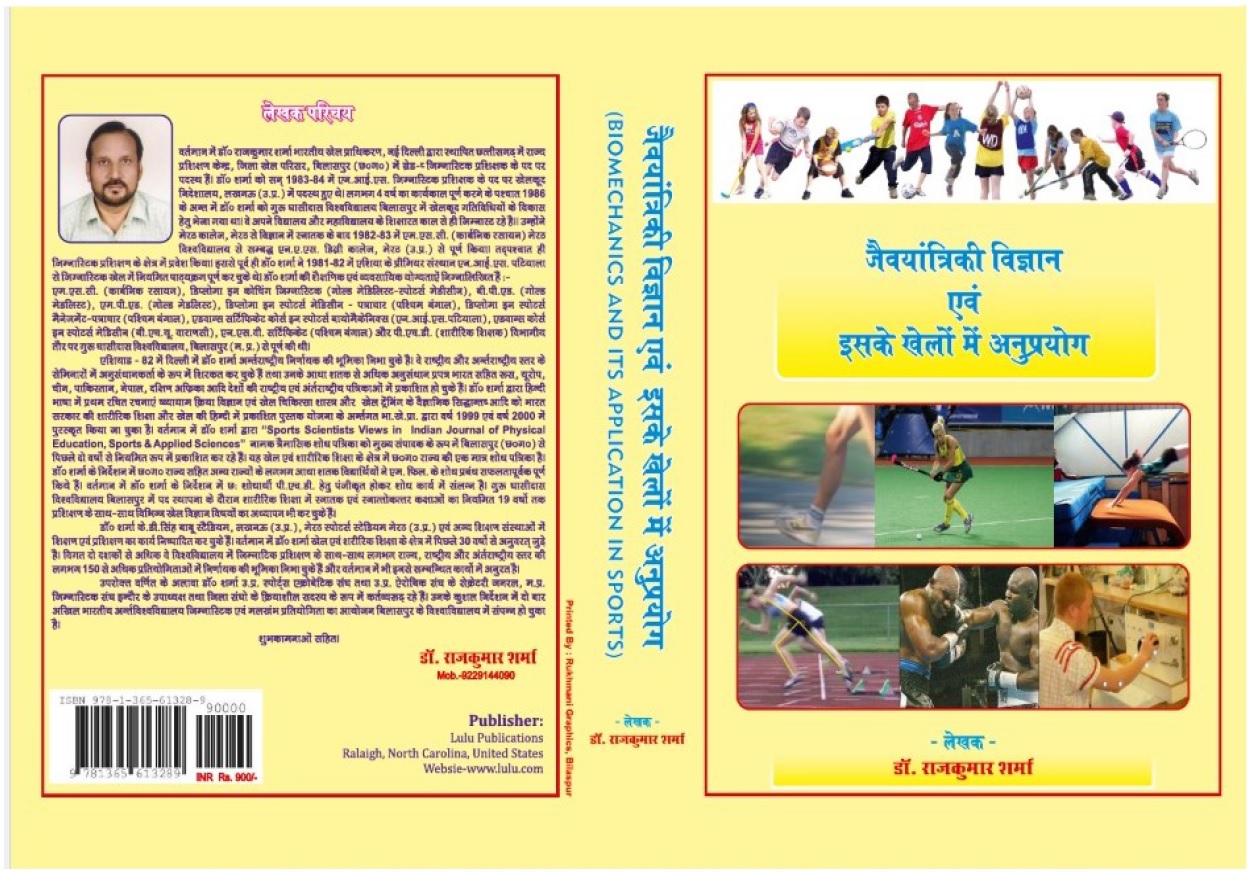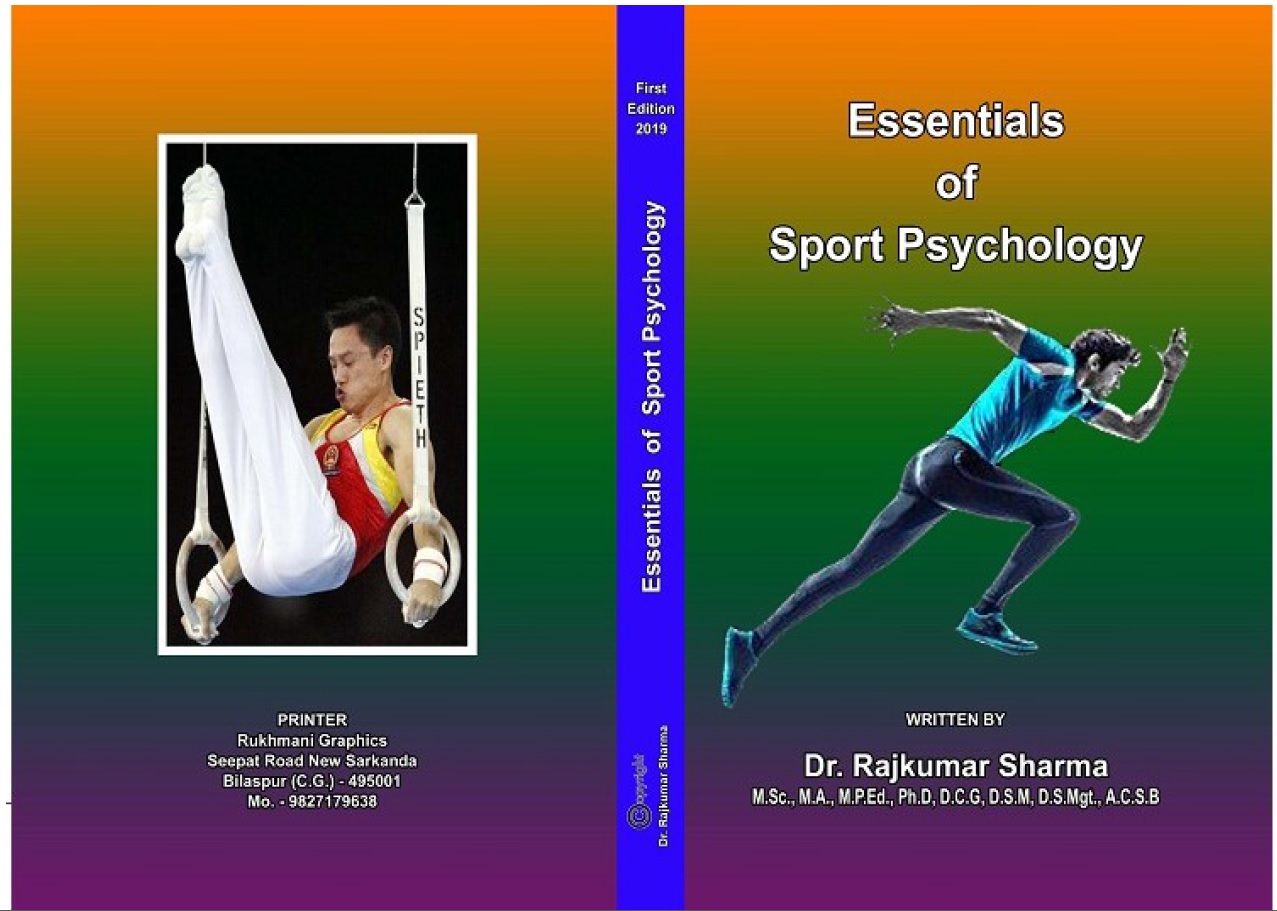| S.No. | Total View Count | Title of Manuscript | Page No | Download/ PDF |
|---|---|---|---|---|
| 1 | A COMPARATIVE STUDY ON COPING SKILLS OF HIGH AND LOW ACHIEVER NATIONAL FEMALE HOCKEY PLAYERS Author: Ravindra Thakur 1 and Dr. B. John 2 | 33-39 |  16 16 |
Article info
doi no.: 05-2016-44975451,
DOI Link :: https://doi-ds.org/doilink/12.2021-35613899/IJPESAS/05.2016-44975451/V11/I4/A5
AFFILIATIONS:
- Research Scholar, Department of Physical Education, Dr. CV Raman University, Kargi Road Kota Bilaspur C.G.
- Associate Professor, Department of Physical Education, Dr. CV Raman University, Kargi Road Kota Bilaspur C.G.
The present study aimed to compare the coping skills of high and low achiever national female hockey players. The sample for the present study includes 50 high achievers and 50 low achievers female field hockey players. The selection of high achiever female hockey players was done from the first three ranked teams in a national level hockey tournament. The selection of low achiever female hockey players was done from the bottom three ranked teams in a national level hockey tournament. The sample was selected through purposive sampling with an average age of the sample was 23.11 years. To assess the coping skills of female hockey players, inventory prepared by Smith et al. (1995) was considered appropriate. It was found that the coping skills of high achiever (medal winner) national female hockey players were significantly superior as compared to low achiever (non-medal winner) national female hockey players. It was concluded that high achiever national female hockey players have more sustained and better cognitive and behavioural efforts to overcome the requirement of that particular circumstance or event as compared to low achiever national female hockey players.
Keywords: Coping skills, Female, Hockey, National level, High and Low Achiever.
References
Agashe, C.D. and Chaurasiya, V.K. (2013). A Comparative Study of Personality Characteristics of National Hockey Player Hailing from Public Sector and Defence Organisations. Online International Interdisciplinary Research Journal, 3(1), 155-158.
Bois, J.; Sarrazin, P.; Southon, J. and Boiche, J.C. (2009). Psychological Characteristics and their Relation to Performance in Professional Golfers. The Sport Psychologist, 23, 252-270.
Eloff, M., Monyeki, A. and Grobbelaar (2011). Mental skill levels of South African male student field hockey players in different playing positions. African Journal for Physical Activity and Health Sciences, 17(4), 636-646.
Esfahani, N. and Ghezelseflo, H. (2013). The comparison of psychological skills of Elite and non-Elite Karate ka and its relation with athletes’ performance. Quarterly Journal of Psychological Studies, 9(1), 109-120.
Folkman, S., and Lazarus, R. S. (1980). An analysis of coping in a middle-aged community sample. Journal of Health and Social Behavior, 21, 219-239.
Kap, P. E. (2000). Personality assessment and the prediction of success and achievement in professional hockey. Dissertation Abstracts International: Section B: The Sciences and Engineering, 61, 3315.
Khan, M.K. (2014). A comparative study of self-confidence among different levels hockey players. Review of Research Journal, 3 (4), 60-61.
Meyers, M.C., Bourgeois, A.E., LeUnes, A. and Nurray, N.G. (1999). Mood and psychological skills of elite and sub-elite equestrian athletes. Journal of Sport Behavior, 22, (3), 1-7.
Nachum, Adina (2018). Self-Regulation and High School Athletes: An action research study. Master’s Thesis in Sport and Exercise Psychology. University of Jyväskylä. Faculty of Sport and Health Sciences.
Nas Kazim; Temel Veysel (2019). Mental Toughness of Students: Levels of Hockey Players Mental Toughness of the Athletes. Asian Journal of Education and Training, 5(1): 224-228.
Night, J.R.S. (2015). Analysis of Emotional Intelligence among Hockey Players in Relation to their Positional Play. Research Journal of Physical Education Sciences, 3(7), 8-11.
O'Neil, J. and Steyn, B.J.M. (2007). Strategies used by South African non-elite athletes to cope with the environmental stressors associated with endurance events. South African Journal for Research in Sport, Physical Education and Recreation, 29(2), 99-107.
Pensgaard, A.M. and Ursin, H. (1998). Stress, control, and coping in elite athletes. Scandinavian Journal of Medicine and Science in Sports, Vol. 8, Issue 3, 183-189.
Peter, Vijay Francis (2014). The Study of Group Cohesion and Aggression between All India Inter University and National Female Hockey Player’s. Research Journal of Physical Education Sciences, 2(7), 4-7.
Sotoodeh, M.S., Talebi, R., Hemayattalab, R. and Arabameri, E. (2012). Comparison of Selected Mental Skills Between Elite and Non-Elite Male and Female Taekwondo Athletes. World Journal of Sport Sciences 6 (1), 32-38.
Vurho, J.Z., Hamafyelto, S.S. and Buba, A.S. (2017). Relationship among Flow, Self-Concept, and Sports Performance of Club Hockey Players in North-East Zone, Nigeria. International Journal of Education and Research, 5(7), 301-322.
Walker, S.P. (2016). Mindfulness and mental toughness among provincial adolescent female hockey players. S. Afr. J. Sports Med,; 28(2), 46-50.
Waples, S. B. (2003). Psychological characteristics of elite and non-elite level gymnasts Unpublished Doctoral dissertation. Texas A & M University, College Station, Texas.
 admin@sportscientistsviews.com
admin@sportscientistsviews.com

